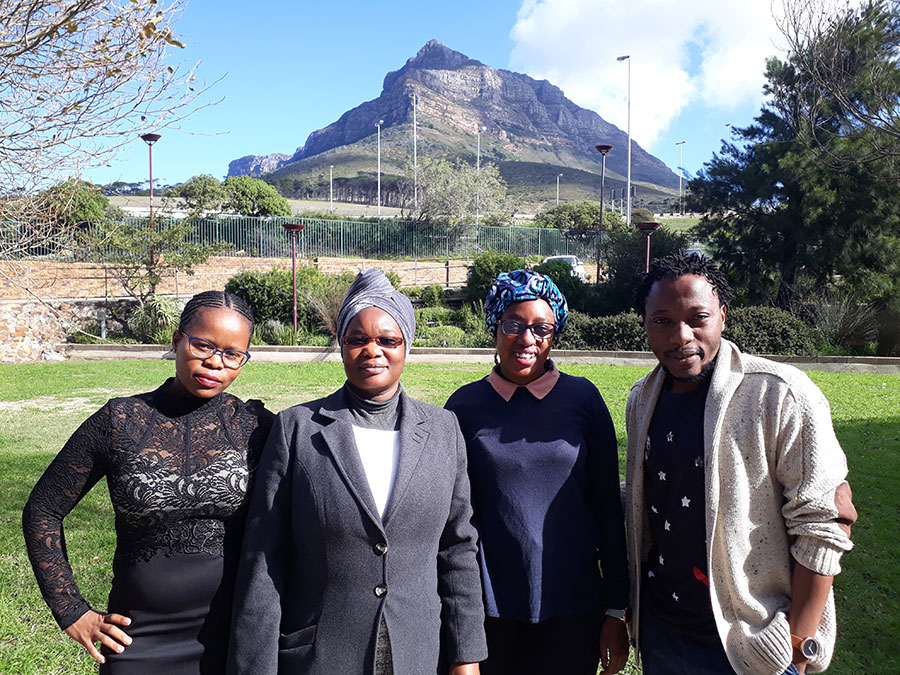Eugene Dowdle Award PhD Presentations - Final session

Today, 6 June 2019, the fourth and final round of PhD Presentations took place in the Wofson Pavilion. Four PhD candidates, Muchaneta Mugabe, Jermaine Khumalo. Khanyisile Kgoadi and Cheleka Mpande presented on their PhD projects while competing for the Eugene Dowdle Award with winners receiving 1st place R15,000, 2nd place R7,000 and 3rd place R3,500 cash prizes.

Khanyisile Kgoadi, Muchaneta Mugabe, Cheleka Mpande and Jermaine Khumalo
Muchaneta Mugabe began the final round with a presentation entitled "Vaginal microbiota associate with HIV in a cohort of Zimbabwean pregnant women". Muchaneta aimed to investigate the relationship between vaginal microbiota and pregnancy outcomes in pregnant African women. She found that HIV infections is independently associated with prematurity and altered vaginal microbiota, but that HIV does not seem to be inflammatory during pregnancy in the genital tract.
Jermaine Khumalo presented next on "The temporal requirement of IL-4∝ signaling in Allergica asthma". Jermaine found that deletion of the IL-4∝ signaling has a therapeutic effect on established allergic airway disease and prevents the development of ovalbumin induced airway hyperreactivity, eosinophilia and goblet cell metaplasia in allergen-sensitised mice.
Third to present was Khanyisile Kgoadi whose talk was entitled "The role of antigen presenting cells and T cells in mice infected with central nervous system tuberculosis (CNS-TB)". Khanyisile found that conventional dendritic cells are preferentially recuited to the brain during CNS-TB and generate specific functional phenotype and cytokine/chemokine profiles that contributed to the regulated Th1 immune response cell regulate T cell function and phenotype when recruited to cervical lymph nodes.
The final presenter for the year was Cheleka Mpande who spoke on "QuantiFERON Reversion: Is it Real?". Cheleka aimed to define functional and phenotypic characteristics of T cell responses associated with QFT reversion. QFT reversion represents a true reduction in Mycobacterium tuberculosis specfic IFN-y producing T cells and is negatively associated with expression of phenotypic and memory markers associated with antigen load. Her conclusion stated that QFT reversion in her cohort suggestively due to an artefact of the QFT assay and detectable functional and memory responses are not suggestive of lower antigen load past reversion.
Congratulations to all the PhD students who took part in the Eugene Dowdle Award PhD Presentations! We thank the judges and moderators who kindly gave their time and those who supported the presenters in the audience. The winners will be announced at the end of June 2019.
Article by Bonamy Holtak
